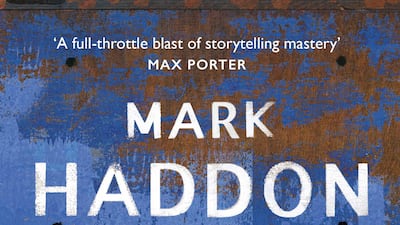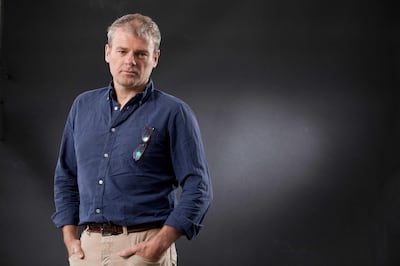Mark Haddon's debut novel, The Curious Incident of the Dog in the Night-Time, established him as an audacious, gifted writer but he has now pushed the envelope even farther by venturing into mythology in his latest novel.
The Porpoise begins with a bang, or rather, a crash. Philippe loses his wife in a terrible plane crash, with their infant daughter, Angelica, the sole survivor. As she grows up under the care of her affluent but controlling father, his overwhelming grief takes a darker turn and he becomes obsessed with her, eventually molesting her. Smothered by her father's overprotective upbringing and guilt-ridden with their vile secret, Angelica starts looking for a way out.
Her knight in shining armour appears in the form of Darius, her father's business colleague. Darius immediately senses that something is wrong in the household, and attempts to make a bold, albeit foolish, bid to rescue her. He only escapes a violent death at the hands of Philippe by the skin of his teeth.
It is at this critical juncture that Haddon flexes his writing muscles by flipping the plot on its head. Darius transmogrifies into Pericles, loosely inspired by the eponymous play by Wilkins and Shakespeare. The shift from realism to the fantastical is as seamless as it is efficient. From there onwards, the story is full of dramatic twists in which Angelica, her mother and her father appear and disappear throughout the narrative in the form of different characters. Is this a discrete, parallel storyline or is this epic fantasy a figment of Angelica's overactive imagination as spends her forlorn days buried in books?
The writing throws the reader several curveballs as it hopscotches through time and coinciding story arcs. The multifarious narrative challenges readers to connect the divaricated dots. What stands out is the exhaustive research that went into the book because the multiple plot lines smoothly morph into each other, but the Pericles-inspired plot almost becomes self-referential.
Haddon's strong suit has always been his ability to look at the sentient element in any situation. He manages to make you empathise even with a monster, in this case Philippe. He has lived a life of privilege and was accustomed to everything happening at his will.
"Philippe is not so naive as to believe that money can alter the brute facts of life, but he has always assumed that it can postpone and ameliorate," Haddon writes. So when the plane crash snatches his wife from him, the loss rattles Philippe to his very core and he is unable to get over that shock, which tarnishes his relationship with his daughter.
Similarly, Pericles loses his wife while she is bringing their daughter into the world. His anguish is potent, palpable and all consuming.
“There are whole days when Pericles forgets that he has a daughter. Perhaps for the best, since every memory of her is followed immediately by a memory of that blood-spattered chamber and a vision of the box being nailed shut and tarred and tipped into the sea,” Haddon writes.
"While both men can be justifiably accused of neglectful parenting, it is also evident how their crushing grief has turned them into monsters."
There are several overlapping themes in the parallel storylines and mirror images are ingeniously woven throughout the narrative. The underlying theme of the coalescing story arcs in The Porpoise seems to be the universality of basic human experiences, especially love, bereavement and jealousy.
Someone with a rudimentary knowledge of the Jacobean play and the Appollonius stories will get more out of this book since it is exhaustively researched. Those less familiar might have a hard time navigating through some of the more labyrinthine sections of the story.
It would be unfair to say that this delicately wrought novel is a retelling of Pericles, Prince of Tyre since it is acutally more a clever amalgamation of Greek mythology entwined with a modern day story.


